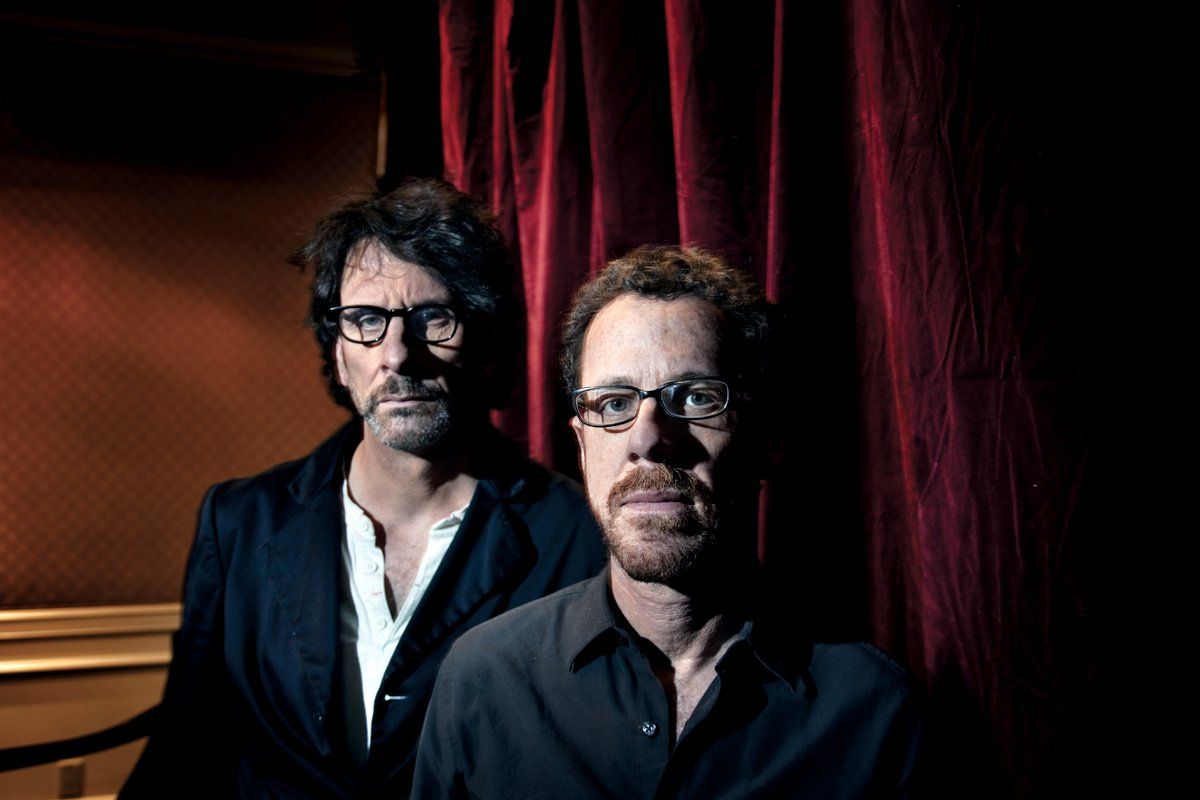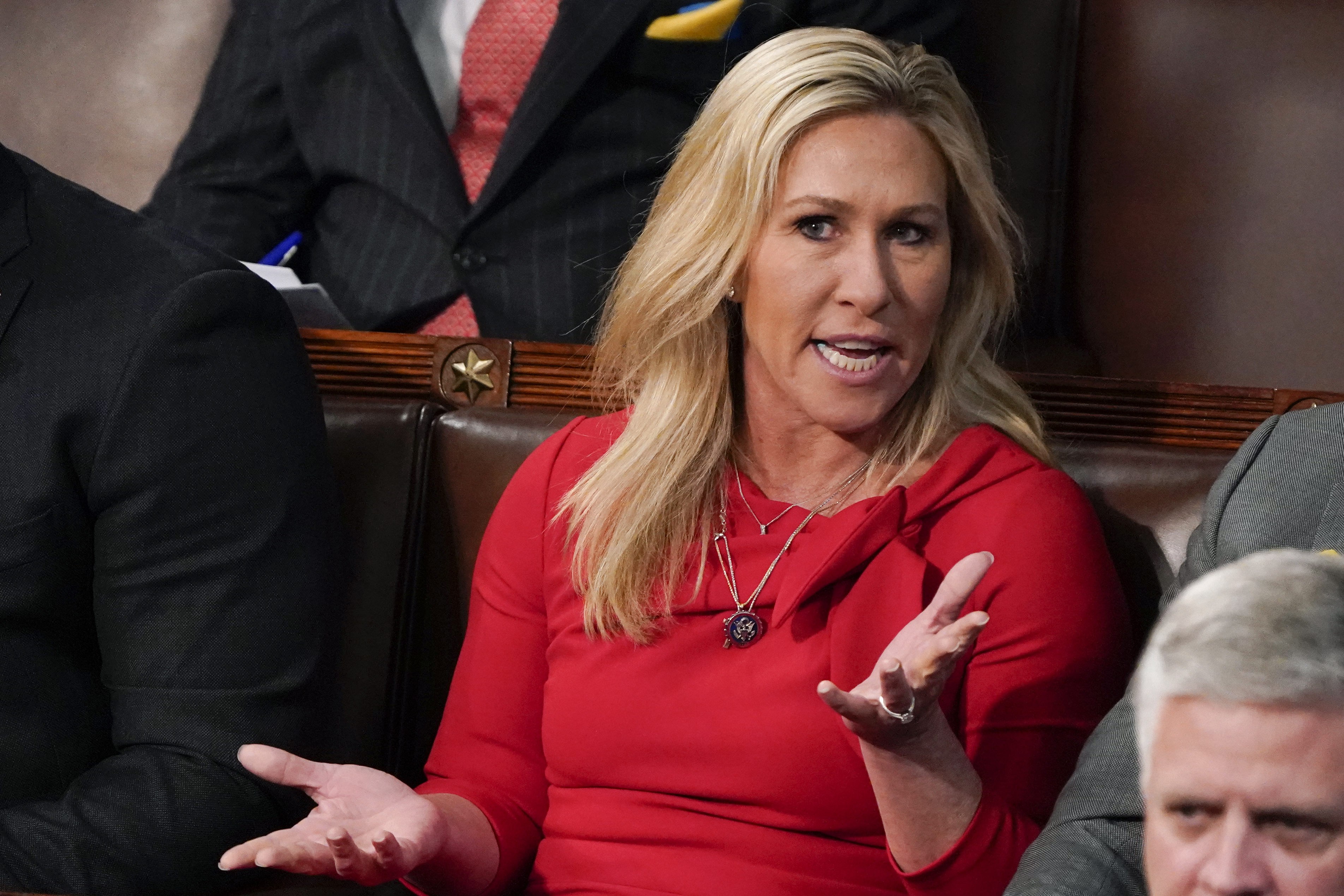
True Grit is the first Western you've ever done. Did you look at old Westerns?
Ethan Coen:No, actually we didn't. We looked at very specific things, like horse stunts. We did not look at movies per se.
Joel Coen: The problem with actually looking at horse stunts in Westerns is, 90 percent of what you could have done with a horse 20 years ago you can no longer do because of animal-treatment rules.
Ethan: You can't complain about it, because it really did represent to a weird degree cruelty to animals. But God, it makes life really hard.
Joel: Just to have a horse fall down, there are rules everywhere. And we were lucky in just that we had unbelievably great wranglers working on this. There's also the ability to do so much in the computer now.
Do you have a favorite Western?
Joel: I didn't grow up as a John Ford, John Wayne fan. But there are certain John Ford Westerns I really like. I like Rio Bravo, and I like The Man Who Shot Liberty Valance.
Ethan: Totally from the other point of view, we both have always liked Sergio Leone. Once Upon a Time in the West is a great movie. And, you know, like Clint's crazy '70s movies …
Joel: Yeah, The Outlaw Josey Wales is a very good movie.
How much did you depart from the Charles Portis book?
Ethan: The hanged man, the whole thing from the hanging through the bear man, is not [in the book].
There's a big scene in the original where they let Mattie cry about her dead father when she's alone.
Joel: There's a moment in our movie where she's looking at her dead father's stuff in the boardinghouse, but she doesn't cry. It's more her holding it together.
Ethan: It's the unflinching four-square Protestant thing that defines the character.
And I loved that you show her at the end as an older woman without an arm.
Ethan: It's irresistible, you know.
There's the finger-chopping scene. I don't remember if that's in the novel.
Joel: Well, you got to cut some limbs off.
Ethan: Basically, it's 127 Hours.
Joel: Except we don't actually show her cutting her arm off.
Hailee Steinfeld, who plays the girl, is terrific.
Joel: Rachel Tenner, who is one of the people who cast the movie, traveled all over the South interviewing lots of rodeo girls, barrel riders. And after seeing dozens and dozens, if not hundreds, of these girls we ended up casting a girl from Thousand Oaks, Calif., basically from L.A., which is a little weird.
She handles that language. Did people actually not talk with contractions at that time?
Ethan: We've been told that the language and all that formality is faithful to how people talked in the period.
Is Paramount planning on pushing her for Oscar consideration?
Ethan: You know, there's kind of a pro forma thing they do for basically everybody, and I'm sure they'll do that.
Joel: You know, it's so weird. I don't remember any of this stuff going on when we started making movies, any of this need to release the movie before Christmas or this endless sort of parade of glad-handing in awards ceremonies.
Ethan: The first time anything like this happened to us was Fargo, which got a lot of nominations, totally uncampaigned for and totally unexpected, and that was kind of the norm. People weren't mounting big campaigns.
Did winning the Oscar for No Country for Old Men make any significant difference in your careers?
Joel: When A Serious Man came out, Todd McCarthy said, "This is the movie you make after you've won an Oscar." And what's interesting about that is, that deal had been made with Focus and Working Title before we made No Country. But it could easily have been the reverse.
Ethan: We've become institutionalized in a way that makes things easier, which might itself not be good.
Certain directors win Oscars and then they're paralyzed. Remember how long it took for Sydney Pollack to make a movie after Out of Africa.
Ethan: That kind of paralysis only happens if you kind of worry about quality, which we clearly don't.
Joel: Maybe we should worry about it a little bit more, but life's too short, really.
Would you consider making a 3-D movie?
Joel: There's some kind of movies that are just hard for us to get our heads around, like outer-space movies. I mean, I enjoy watching them, but I can't see making them. And 3-D is kind of in that neighborhood for us.
Ethan: I mean, we still wish we could make movies in black and white. So we're going the other way.
Uncommon Knowledge
Newsweek is committed to challenging conventional wisdom and finding connections in the search for common ground.
Newsweek is committed to challenging conventional wisdom and finding connections in the search for common ground.
About the writer
To read how Newsweek uses AI as a newsroom tool, Click here.








